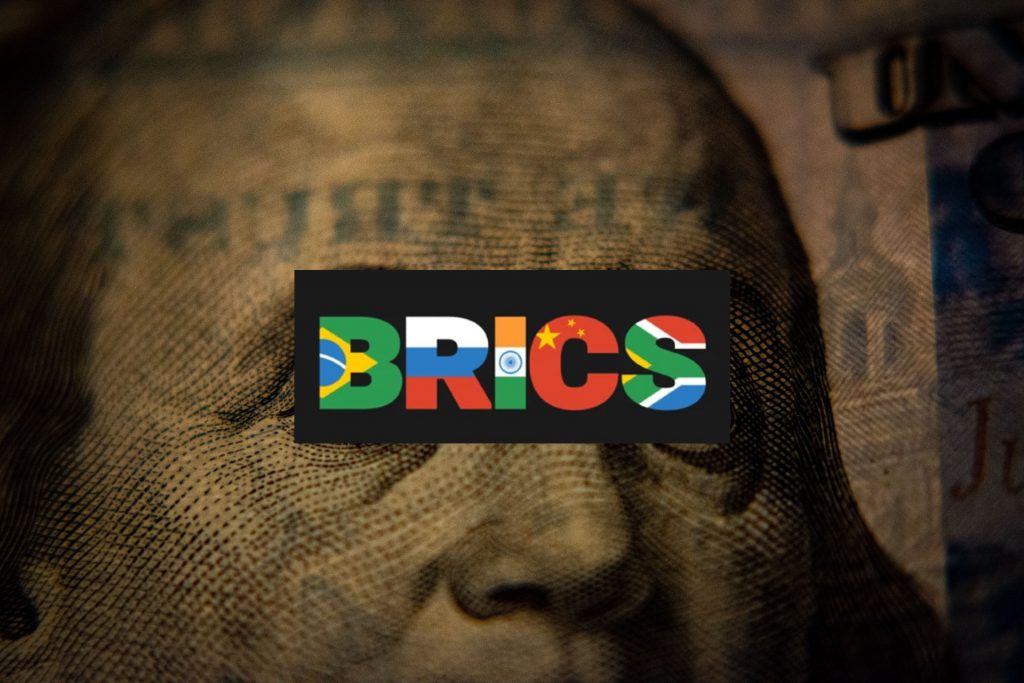As the annual summit is set to take place this summer, the BRICS Alliance is reportedly set to discuss the potential launch of a common currency used for international trade. The nations are continuing their efforts to dethrone the US dollar’s dominance in global trade, and a common currency could be a new threat to the US Dollar.
Recently, BRICS has been pushing towards de-dollarization, and onboarding multiple nations worldwide to follow the same. Countries that previously engaged with the US Dollar and used it actively in trade, such as Argentina, are now opting for alternatives.


As inflation and relegations grow for the US Dollar, and with a potential default looming, the BRICS alliance organizing a common currency seems more and more likely. Furthermore, the US Dollar seems to be getting weaker and hasn’t been under a threat like this in decades.
The exact common currency that BRICS may opt for remains unknown. However, it will be a hot topic at the upcoming BRICS Summit this August. On top of that, the expansion of the bloc will be discussed, with multiple countries worldwide showing interest and applying to join.
As mentioned before, some of these countries previously used the US Dollar, but are not opting for an alternative. This will weaken the dollar more, and in time, USD can be in serious danger.
Will BRICS be able to Establish a Common Currency?
For a group of nations to conceive a unified BRICS currency, it would require cooperation and the gradual elimination of local currencies. The latter will likely be the most difficult part for the Alliance, as despite sharing a common interest in de-dollarization, any new BRICS nations may differ in the exact alternative to use.
Argentina recently opted for the Chinese Yuan for trade. On the other hand, South Africa, the S in BRICS, is sharing caution in jumping to conclusions about a common currency.
“I don’t like preempting BRICS leaders’ discussions,” Naledi Pandor, South Africa’s Minister of International Relations and Cooperation, stated. “It’s a matter we must discuss and discuss properly. I don’t think we should always assume the idea will work because economics is very difficult and you have to have regard for all countries, especially in a situation of low growth when you are emerging from crises.”
Whatever currency BRICS opts for, in time it can definitely prove to be a threat to the US Dollar. That threat may not come right away, but it is something that the USD should prepare for.





